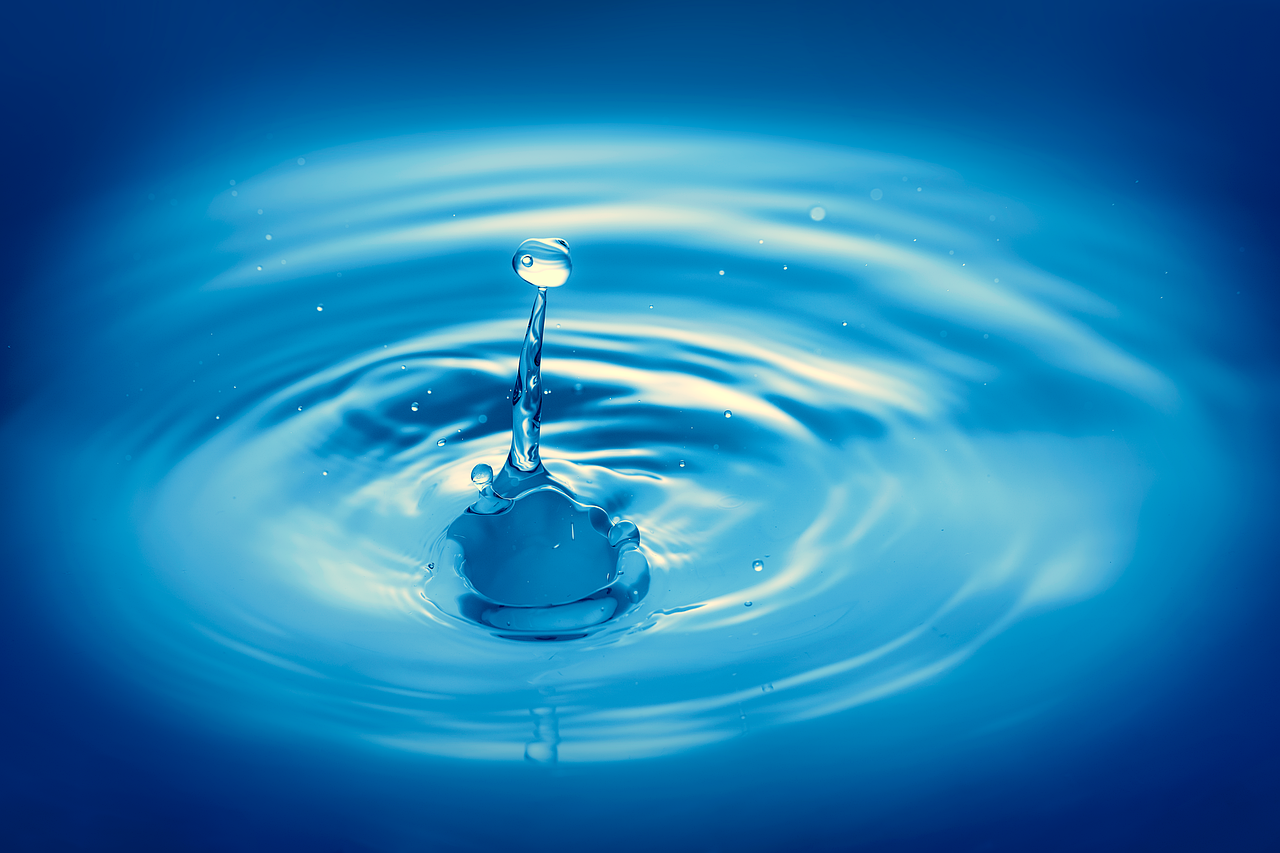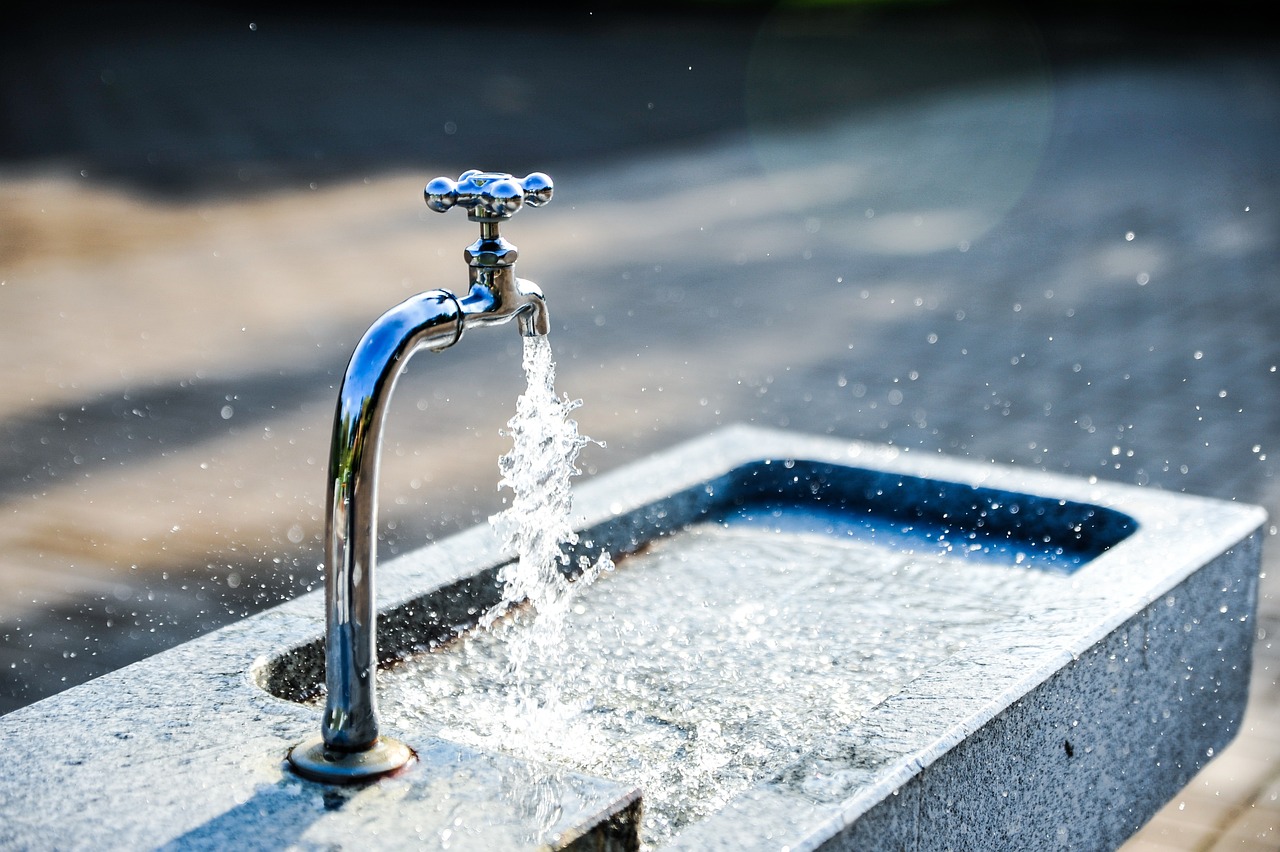This article serves as a comprehensive guide on undertaking a 21-day water fast. It covers essential aspects such as preparation, the fasting process, benefits, risks, and what to expect, enabling individuals to navigate this challenging journey effectively.
What is a 21-Day Water Fast?
A 21-day water fast involves abstaining from all food and consuming only water for three weeks. This practice is often pursued for various reasons, including detoxification, weight loss, and spiritual growth.
Benefits of a 21-Day Water Fast
Engaging in a prolonged water fast can yield numerous benefits. Some of the most notable advantages include:
- Improved mental clarity
- Enhanced metabolism
- Potential weight loss
Understanding these benefits can motivate individuals to commit to the process and embrace the challenges that come with it.
Physical Health Benefits
Water fasting can lead to various physical health improvements, such as:
- Reduced inflammation
- Better insulin sensitivity
- Cellular repair
These benefits contribute significantly to overall well-being and can have lasting effects on health.
Weight Loss and Fat Burning
During a water fast, the body shifts to burning fat for energy, which can result in significant weight loss. This metabolic shift is appealing for those looking to shed excess pounds.
Detoxification Process
Fasting allows the body to focus on detoxification, efficiently eliminating toxins and waste products. This cleansing effect can enhance overall health and vitality.
Mental and Emotional Benefits
The mental clarity and emotional resilience gained during a 21-day water fast can be transformative. Many participants report heightened focus and improved mood throughout the fasting period.
Preparing for a 21-Day Water Fast
Preparation is crucial for a successful water fast. Here are some steps to consider:
- Consult a healthcare professional: Before starting a prolonged fast, it is essential to consult a healthcare provider, especially for individuals with underlying health conditions or those taking medications.
- Gradually reduce food intake: Easing into the fast by gradually decreasing food consumption can help your body adjust.
- Create a fasting schedule: Establishing a clear fasting schedule helps set expectations and provides a framework for the fasting period.
What to Expect During a 21-Day Water Fast
Understanding what to expect can help individuals mentally prepare for the challenges and changes they may experience throughout the process:
- Physical symptoms: Participants may encounter various physical symptoms such as hunger pangs, fatigue, and headaches.
- Mental challenges: Cravings and mood fluctuations are common during fasting. Developing coping strategies is vital for maintaining focus and motivation.
Breaking the Fast Safely
How one breaks a fast can significantly impact health. It is essential to reintroduce food gradually to avoid complications. Recommended foods to break the fast include:
- Light, easily digestible foods like broths and fruits.
- Gradually increasing solid food intake can support recovery.
Hydration Post-Fast
Maintaining proper hydration after breaking the fast is crucial. Gradually increasing fluid intake can support recovery and overall health following the fasting period.

What is a 21-Day Water Fast?
A 21-day water fast is a significant commitment that involves abstaining from all food and consuming only water for a duration of three weeks. This practice is often undertaken for various reasons, including detoxification, weight loss, and spiritual growth. During this period, the body undergoes profound changes, transitioning into a state of ketosis, where it starts to utilize fat stores for energy instead of carbohydrates.
Fasting has been practiced for centuries across different cultures and religions. A 21-day water fast is one of the more extreme forms of fasting, requiring both mental and physical preparation. Many individuals embark on this journey to cleanse their bodies of toxins, improve their health, or seek a deeper spiritual connection. The process can be challenging but also rewarding if approached correctly.
- Detoxification: The body naturally detoxifies itself, but fasting can enhance this process by allowing the digestive system to rest and focus on eliminating waste.
- Weight Loss: Many people turn to this fast as a method to shed excess weight quickly. By limiting caloric intake to water, the body begins to burn fat for energy.
- Spiritual Reasons: Fasting is often used as a spiritual tool to encourage reflection, meditation, and a deeper connection to one’s beliefs.
Throughout the fasting period, individuals may experience a range of physical and mental changes. Initially, hunger pangs and cravings may be prevalent, but these often subside as the body adapts to the absence of food. The first few days can be particularly challenging, as the body transitions into a fasted state.
As the fast progresses, the body begins to enter ketosis, leading to increased fat burning. This metabolic shift can result in rapid weight loss and improved energy levels. Additionally, many participants report enhanced mental clarity and focus, attributed to the absence of food distractions and the body’s increased efficiency in utilizing fat for fuel.
On an emotional level, individuals may experience fluctuations in mood and energy. It is essential to remain mindful of these changes and develop coping strategies to handle potential irritability or fatigue. Journaling or engaging in light activities can help maintain a positive mindset during the fast.
Preparation is critical for a successful 21-day water fast. It is advisable to gradually reduce food intake in the days leading up to the fast, allowing the body to adjust. Staying hydrated is also crucial; ensuring adequate water intake can help mitigate some of the discomfort associated with fasting.
Before embarking on such an extended fast, it is highly recommended to consult with a healthcare professional, especially for those with pre-existing health conditions or those taking medications. This step is vital to ensure safety and address any potential risks associated with prolonged fasting.
Establishing a clear fasting schedule can aid in setting expectations and maintaining focus. This schedule should include planned hydration times and rest periods, allowing the body to adapt gradually.
Breaking the fast is just as important as the fasting period itself. It is crucial to reintroduce food gradually to avoid overwhelming the digestive system. Starting with light, easily digestible foods like broths, fruits, and vegetables can help ease the transition back to regular eating.
In conclusion, a 21-day water fast is a profound journey that can lead to numerous benefits, both physically and mentally. By understanding what to expect and how to prepare, individuals can navigate this challenging process effectively and safely.
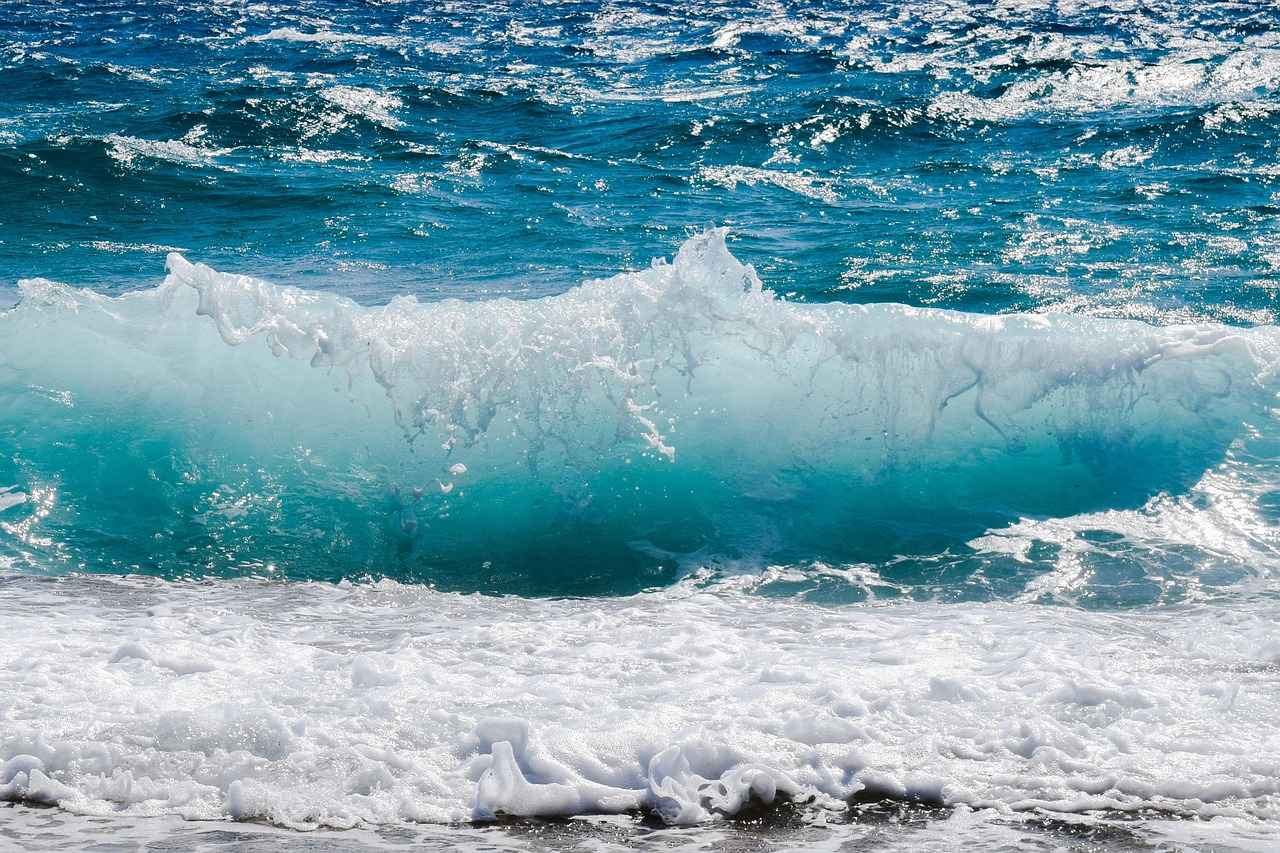
Benefits of a 21-Day Water Fast
Engaging in a prolonged water fast, specifically a 21-day water fast, can yield numerous benefits that extend beyond mere weight loss. This practice, which involves abstaining from all food and consuming only water, has gained popularity for its potential to enhance both physical and mental well-being. Understanding these advantages can serve as a powerful motivator for individuals considering this transformative journey.
Improved Mental Clarity is one of the most frequently reported benefits of a 21-day water fast. Many participants experience heightened focus and cognitive function, which can be attributed to the body’s shift away from processing food. Instead of expending energy on digestion, the body reallocates resources to support brain function. This can lead to a clearer mind, better decision-making, and enhanced creativity.
Furthermore, the fasting process can trigger a metabolic reset. During a prolonged fast, the body enters a state of ketosis, where it begins to burn fat for energy instead of carbohydrates. This metabolic shift can lead to enhanced fat burning and increased energy levels, making it easier to engage in physical activities and maintain a healthy lifestyle post-fast.
Weight Loss is another significant benefit of a 21-day water fast. As the body utilizes stored fat for energy, participants often see a noticeable reduction in body weight. This process not only helps in shedding excess pounds but also promotes a healthier body composition. Many individuals find that the weight loss achieved during a water fast can serve as a springboard for further health improvements, encouraging them to adopt more sustainable eating habits afterward.
Additionally, a 21-day water fast can support the body’s natural detoxification processes. By abstaining from food, the body can focus on eliminating toxins and waste products that accumulate over time. This cleansing effect can enhance overall health and vitality, leaving participants feeling rejuvenated and more energetic.
Beyond the physical benefits, the mental and emotional aspects of fasting are equally compelling. Many individuals report experiencing a greater sense of emotional resilience during their fasting period. The challenge of abstaining from food can foster a sense of discipline and self-control, which can positively impact various areas of life. Participants often find that they develop a deeper connection with their bodies and a better understanding of their relationship with food.
Moreover, engaging in a 21-day water fast can provide an opportunity for spiritual reflection. Many people use fasting as a time for meditation, prayer, or self-discovery, allowing for personal growth and introspection. This spiritual component can enhance the overall experience and provide a sense of fulfillment beyond the physical benefits.
In summary, the benefits of a 21-day water fast are multifaceted, encompassing improved mental clarity, enhanced metabolism, significant weight loss, detoxification, emotional resilience, and spiritual growth. Understanding these advantages can empower individuals to commit to the process and embrace the transformative journey that a prolonged water fast offers.
Physical Health Benefits
Engaging in a 21-day water fast can lead to remarkable that go beyond mere weight loss. This practice, which involves consuming only water for three weeks, can significantly impact various aspects of health, promoting a holistic sense of well-being.
One of the primary advantages of water fasting is the reduction of inflammation. Chronic inflammation is linked to numerous health issues, including heart disease, diabetes, and autoimmune disorders. By abstaining from food, the body can focus on healing and repairing itself, leading to decreased inflammation levels. Research indicates that fasting can lower markers of inflammation, such as C-reactive protein (CRP), which is crucial for maintaining overall health.
Another notable benefit of a prolonged water fast is improved insulin sensitivity. Insulin resistance is a significant risk factor for type 2 diabetes and metabolic syndrome. During a water fast, the body becomes more efficient at utilizing insulin, which can help stabilize blood sugar levels. This enhanced sensitivity not only aids in weight management but also supports long-term metabolic health.
Additionally, water fasting promotes cellular repair processes, particularly autophagy. Autophagy is the body’s way of cleaning out damaged cells and regenerating new ones. This process is vital for maintaining cellular health and function, and it can be particularly beneficial in reducing the risk of age-related diseases. Studies have shown that fasting can stimulate autophagy, thereby enhancing the body’s ability to recover and rejuvenate.
Furthermore, water fasting can support cardiovascular health. By lowering blood pressure and cholesterol levels, fasting contributes to a healthier heart. The reduction in body weight and inflammation also plays a significant role in improving heart function. Regular fasting has been associated with a decreased risk of heart disease, making it a compelling option for those looking to enhance their cardiovascular health.
Another aspect worth noting is the potential for enhanced metabolic flexibility. During a water fast, the body shifts from using glucose for energy to burning fat. This metabolic switch not only aids in weight loss but also improves energy levels and mental clarity. Many individuals report feeling more alert and focused during fasting periods, which can be attributed to the body’s efficient use of fat as fuel.
While the physical health benefits of a 21-day water fast are substantial, it is essential to approach this practice with caution. Individuals should consider their unique health circumstances and consult with a healthcare professional before embarking on such a significant fasting journey. Proper preparation and understanding of the process can help mitigate potential risks and enhance the overall experience.
In summary, the of a 21-day water fast are multifaceted, encompassing reduced inflammation, improved insulin sensitivity, enhanced cellular repair, and better cardiovascular health. These advantages contribute to a holistic sense of well-being, making water fasting an appealing option for those seeking to improve their health.
Weight Loss and Fat Burning
Embarking on a 21-day water fast can be a transformative experience, particularly for those seeking to lose weight. During this fasting period, the body undergoes a remarkable metabolic shift, transitioning from using glucose for energy to burning stored fat. This process is not only crucial for weight loss but also serves various health benefits.
When the body is deprived of food, it enters a state known as ketosis. In this state, the liver converts fatty acids into ketones, which become the primary energy source. This shift can lead to significant weight loss as the body efficiently utilizes its fat reserves. Many individuals find this process appealing, especially when traditional dieting methods have failed to yield results.
Moreover, the weight loss experienced during a water fast is often accompanied by a decrease in body fat percentage, which can enhance overall body composition. As the body burns fat for energy, it also helps in reducing visceral fat, the type of fat that surrounds internal organs and is linked to various health risks.
In addition to weight loss, fasting can also promote a healthy metabolism. Studies indicate that intermittent fasting can lead to increased metabolic rates due to hormonal changes, particularly an increase in norepinephrine, which helps in fat burning. This metabolic boost can be beneficial not only during the fasting period but also after resuming regular eating habits.
Another critical aspect to consider is the detoxification process that occurs during a water fast. As the body focuses on burning fat, it also begins to eliminate accumulated toxins, which can lead to improved overall health. This cleansing effect can enhance energy levels and mental clarity, making the fasting experience more rewarding.
However, it is essential to approach a water fast with caution. While the prospect of weight loss and fat burning is enticing, potential risks include nutrient deficiencies and electrolyte imbalances. Therefore, it is crucial to consult with a healthcare provider before embarking on such a prolonged fast, especially for individuals with pre-existing health conditions.
To maximize the benefits of a 21-day water fast, individuals should also consider their mental and emotional state. The fasting journey can present various challenges, including cravings and mood fluctuations. Developing coping strategies, such as mindfulness practices or engaging in light physical activity, can help maintain focus and motivation throughout the fasting period.
In conclusion, a 21-day water fast can be an effective method for weight loss and fat burning, offering numerous health benefits when approached responsibly. By understanding the physiological changes that occur during fasting and preparing adequately, individuals can navigate this challenging journey successfully, achieving their weight loss goals while enhancing their overall well-being.
Detoxification Process
Fasting is a practice that has gained significant attention in recent years, particularly for its potential health benefits. One of the most notable advantages of fasting, especially during a prolonged water fast, is its ability to facilitate the body’s . This process is essential for maintaining overall health and can lead to a variety of positive outcomes.
When the body undergoes fasting, it shifts its focus from digestion to healing and detoxification. This shift allows the body to efficiently eliminate accumulated toxins and waste products that can hinder optimal functioning. The absence of food intake during a water fast means that the body no longer has to expend energy on digestion, enabling it to redirect its resources towards cleansing and rejuvenation.
During a 21-day water fast, the body initiates several key processes aimed at detoxification:
- Autophagy: This is a natural cellular process where the body cleans out damaged cells and regenerates new ones. Fasting triggers autophagy, promoting cellular repair and renewal.
- Enhanced Liver Function: The liver plays a critical role in detoxifying the body. Fasting allows the liver to work more effectively, processing toxins and metabolic waste efficiently.
- Improved Kidney Function: The kidneys filter blood and remove waste. During a fast, the kidneys can focus on eliminating toxins without the burden of processing food.
- Reduction of Inflammation: Fasting has been shown to lower inflammation levels in the body, which can further aid in the detoxification process.
Moreover, the cleansing effect of fasting can lead to a notable increase in energy levels and vitality. Many individuals report feeling more alert and focused during and after a fast, which can be attributed to the body’s enhanced ability to detoxify. As toxins are cleared from the system, the body can function more efficiently, leading to improved mental clarity and emotional well-being.
It is important to note that while the detoxification benefits of fasting are significant, the process should be approached with caution. Individuals considering a prolonged fast should consult with a healthcare professional, particularly if they have underlying health conditions or are taking medications. Proper guidance can help ensure that the detoxification process is safe and effective.
In summary, the detoxification process during a 21-day water fast provides the body with an opportunity to reset and rejuvenate. By focusing on cleansing and eliminating toxins, fasting can enhance overall health and vitality, making it a compelling practice for those seeking to improve their well-being.
Mental and Emotional Benefits
Engaging in a 21-day water fast can offer remarkable that many participants find transformative. Throughout this period, individuals often experience a significant shift in their cognitive functions and emotional states, leading to profound changes in their overall well-being.
One of the most frequently reported benefits is the enhancement of mental clarity. As the body adapts to fasting, many individuals notice an increase in their ability to concentrate and focus on tasks. This heightened state of awareness can lead to improved productivity and creativity. Participants often describe a sense of sharpness in their thoughts, allowing them to approach challenges with renewed vigor and insight.
Moreover, the process of fasting can serve as a powerful reset button for the mind. During this period of abstaining from food, individuals may experience a reduction in mental clutter and distractions. This newfound clarity can help participants reflect on their thoughts and emotions, fostering a deeper understanding of themselves. Many report that this introspection leads to greater emotional resilience, enabling them to cope more effectively with stress and anxiety.
In addition to improved focus, participants often experience enhanced mood stability. The absence of food-related distractions allows individuals to tune into their emotional states more acutely. As a result, they may find themselves more in touch with their feelings, leading to a greater sense of emotional balance. Reports indicate that many individuals experience a lift in mood, often attributing this to the detoxifying effects of fasting, which can lead to a reduction in feelings of lethargy and irritability.
It’s also worth noting that the community aspect of fasting can contribute to emotional well-being. Many individuals join fasting groups or online communities to share their experiences, challenges, and triumphs. This support network can provide encouragement and motivation, further enhancing the overall experience. The shared journey can foster a sense of belonging and camaraderie, which is invaluable for emotional health.
As participants progress through the 21 days, they often report a growing sense of empowerment. Successfully completing such a challenge can boost self-esteem and confidence, reinforcing the belief that they can achieve their goals. This newfound strength can extend beyond the fasting period, influencing other areas of life, including personal and professional pursuits.
However, it’s essential to approach a 21-day water fast with caution and preparation. While the mental and emotional benefits can be significant, individuals should be aware of the potential challenges and seek guidance from healthcare professionals if needed. Proper preparation, including understanding the psychological aspects of fasting, can enhance the overall experience and ensure that participants reap the maximum benefits.
In summary, the mental clarity and emotional resilience gained during a 21-day water fast can be a life-changing experience. Participants often emerge from this journey with a clearer mind, a more stable mood, and a renewed sense of self. These benefits, combined with the physical advantages of fasting, make it a compelling choice for those looking to transform their lives.
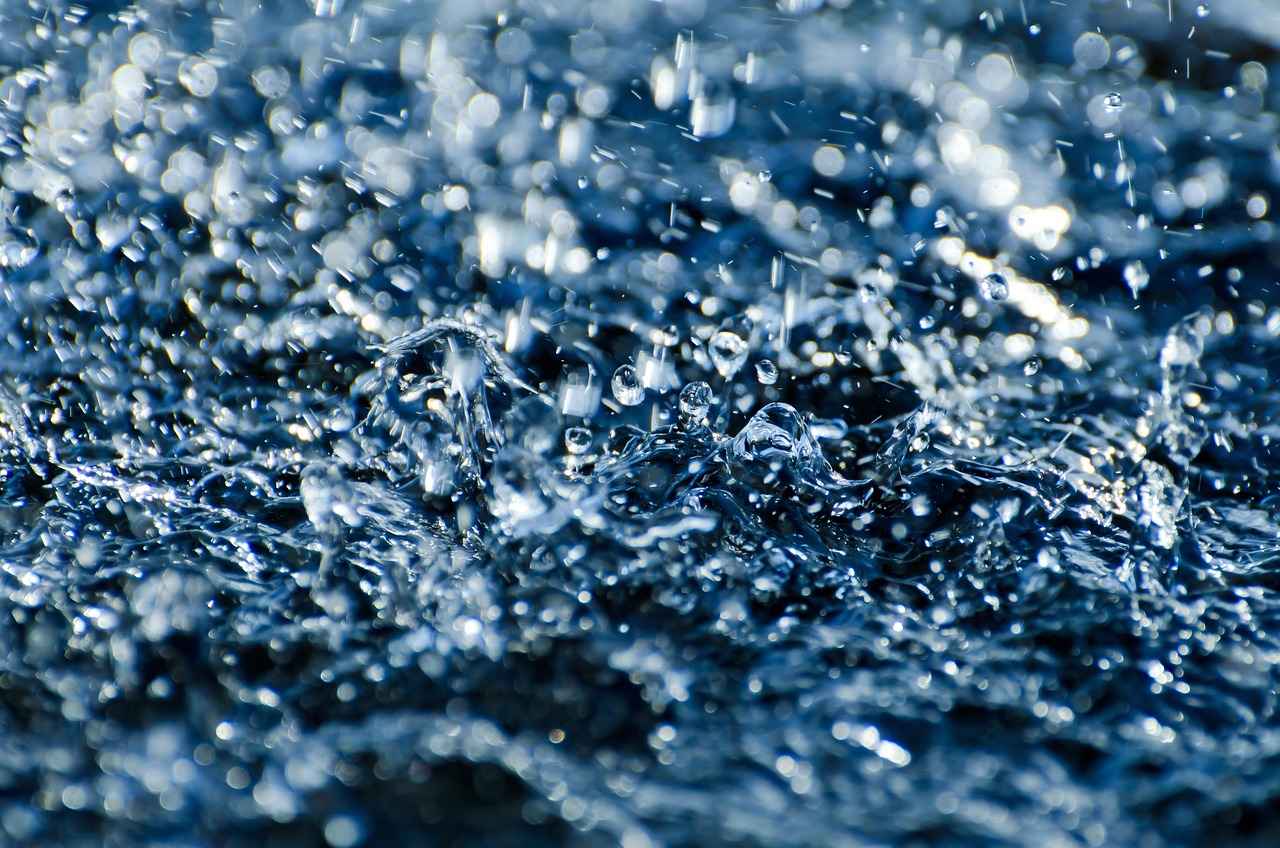
Preparing for a 21-Day Water Fast
is an essential step that greatly influences the overall experience and outcomes of the fasting journey. A well-structured preparation phase can significantly enhance the body’s ability to adapt to the absence of food and help mitigate potential discomforts.
To begin, it is crucial to gradually reduce food intake in the days leading up to the fast. This process, often referred to as pre-fasting, allows the body to adjust to lower calorie consumption and can help minimize the shock of suddenly stopping all food intake. Aim to decrease your meal portions and eliminate heavy, processed foods. Instead, focus on incorporating more fruits, vegetables, and whole grains into your diet. This transition can make the fasting period more manageable and less daunting.
In addition to adjusting your diet, hydration plays a critical role in preparing for a water fast. Ensuring that your body is well-hydrated before you start fasting can help alleviate feelings of hunger and fatigue during the initial days. Aim to drink plenty of water, herbal teas, and other non-caloric beverages. This not only supports bodily functions but also helps in flushing out toxins that may be present in your system.
Another important aspect of preparation is consulting a healthcare professional. This step is especially vital for individuals with pre-existing health conditions or those taking medications. A healthcare provider can offer personalized advice and ensure that fasting is safe for you. They can also help identify any potential risks and provide recommendations tailored to your health needs.
Creating a fasting schedule is also beneficial. Establishing a clear timeline for your water fast helps set realistic expectations and provides a framework for your journey. Consider marking your calendar with key dates, including the start and end of your fast, as well as any planned breaks for rest and hydration. This structured approach can enhance your commitment and accountability throughout the fasting period.
As you prepare for your water fast, it’s also essential to mentally prepare for the challenges that may arise. Acknowledge that you may face physical symptoms such as hunger pangs, fatigue, and irritability. Understanding that these feelings are normal and temporary can help you stay focused and motivated. Consider practicing mindfulness techniques or engaging in light physical activities, such as walking or yoga, to keep your mind centered and your body active.
Finally, it’s beneficial to connect with others who have experience with water fasting. Joining online forums or local support groups can provide valuable insights and encouragement. Sharing experiences and tips can help you feel less isolated and more empowered as you embark on this significant journey.
In summary, effective preparation for a 21-day water fast involves a combination of dietary adjustments, hydration, professional consultation, and mental readiness. By taking these steps, you can set yourself up for a more successful and rewarding fasting experience.
Consulting a Healthcare Professional
Before embarking on a 21-day water fast, it is crucial to recognize the importance of consulting a healthcare professional. This step is particularly vital for individuals who have underlying health conditions or those who are currently taking medications. Engaging with a healthcare provider can help ensure that the fasting process is safe and tailored to individual health needs.
Understanding Individual Health Needs
Every person’s health profile is unique. Conditions such as diabetes, heart disease, or eating disorders may complicate the fasting process. A healthcare provider can assess these conditions and determine whether a prolonged fast is advisable. They may also provide recommendations on how to approach fasting in a way that minimizes risks.
Medication Considerations
For those on medication, fasting can impact how medications are absorbed and metabolized in the body. Certain medications may require food for proper absorption, while others may need to be adjusted during a fasting period. Consulting with a healthcare provider ensures that any necessary adjustments are made to avoid adverse effects.
Potential Risks of Fasting
While many individuals may seek the benefits of a water fast, it is essential to be aware of the potential risks involved. These can include:
- Electrolyte Imbalance: Prolonged fasting can lead to dangerous imbalances in electrolytes, which are critical for heart and muscle function.
- Dehydration: Although water is consumed, individuals may still experience dehydration if not enough fluids are ingested.
- Fatigue and Weakness: Extended periods without food can lead to significant fatigue and weakness, impacting daily activities.
Personalized Fasting Plans
Healthcare providers can assist in developing a personalized fasting plan that considers individual health status and goals. This may include recommendations on how to prepare for the fast, what to expect during the process, and how to safely break the fast afterward.
Monitoring Health During Fasting
Regular check-ins with a healthcare professional during the fasting period can help monitor any adverse effects and ensure that the fasting process remains safe. This proactive approach can help address any concerns that arise and provide peace of mind.
Conclusion
Ultimately, consulting a healthcare provider before starting a 21-day water fast is not just a precaution; it is a vital step towards ensuring a safe and effective fasting experience. By doing so, individuals can embark on their fasting journey with confidence, armed with the knowledge and support necessary to navigate this challenging yet rewarding process.
Creating a Fasting Schedule
is a crucial step in successfully navigating a 21-day water fast. A well-structured schedule not only sets clear expectations but also provides a framework that helps individuals manage their fasting period effectively. This involves thoughtful planning, particularly around hydration and rest, which are essential components of the fasting experience.
When embarking on a 21-day water fast, the first task is to establish a daily routine. This routine should include specific times for drinking water, periods for rest, and even moments for reflection or meditation. By designating these times, you create a sense of structure that can make the fasting experience more manageable.
To begin, it is advisable to set hydration goals. Aim to consume a certain amount of water each day, ideally around 2 to 3 liters, depending on your body weight and activity level. Keeping a water bottle handy can serve as a reminder to stay hydrated throughout the day.
In addition to hydration, planning for rest periods is equally important. During a prolonged fast, your body may experience fatigue as it adjusts to the absence of food. Therefore, it is wise to schedule time for naps or quiet moments to recharge. Listening to your body and allowing yourself to rest can significantly enhance your overall experience.
Moreover, consider incorporating light activities into your schedule, such as gentle stretching or short walks. These activities can help maintain circulation and prevent stiffness, while also promoting a sense of well-being. However, it’s crucial to avoid strenuous exercises during the fasting period, as they can lead to excessive fatigue.
Another key aspect of your fasting schedule should include mental preparation. Anticipate the challenges you might face, such as cravings or emotional fluctuations. Allocating time for mindfulness practices, such as meditation or journaling, can help you stay grounded and focused on your goals.
Additionally, consider creating a support system. Whether it’s friends, family, or online communities, having people to share your experience with can provide encouragement and accountability. Regular check-ins with your support system can help you stay motivated and committed to your fasting schedule.
Finally, it is essential to document your journey. Keeping a fasting journal can help you track your hydration, rest, and emotional state throughout the 21 days. This practice not only provides valuable insights into your experience but can also serve as a motivating factor to continue when challenges arise.
In summary, creating a fasting schedule is about establishing a clear framework that includes hydration, rest, and mental preparation. By thoughtfully planning your days, you can navigate the challenges of a 21-day water fast with greater ease and confidence.
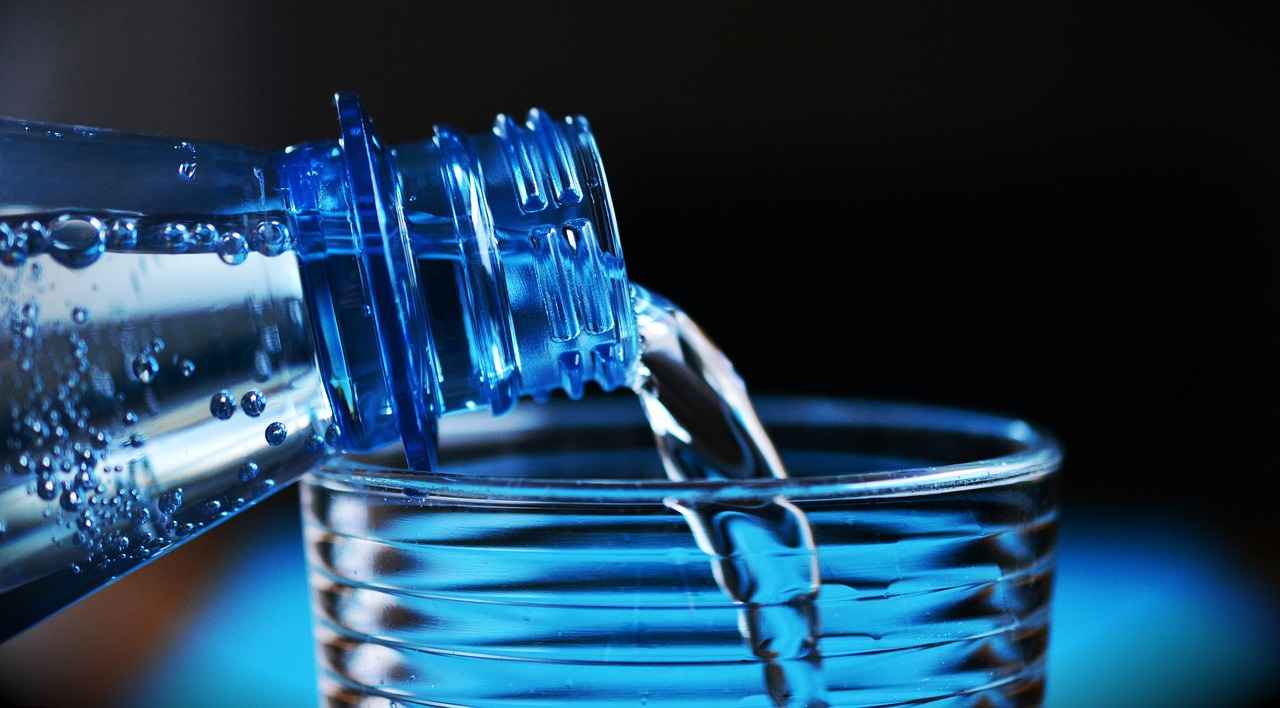
What to Expect During a 21-Day Water Fast
Embarking on a 21-day water fast is a significant commitment that requires not only physical preparation but also mental readiness. Understanding what to expect during this fasting journey can equip individuals with the necessary tools to navigate the challenges and changes they may encounter.
Throughout the fasting period, participants can anticipate a variety of physical and mental experiences. Recognizing these can help in managing expectations and maintaining motivation.
- Hunger Pangs: As the body adjusts to the absence of food, hunger pangs may arise, particularly in the first few days. It’s essential to remind yourself that these sensations are temporary.
- Fatigue: A common experience during the initial phase is fatigue, as the body shifts its energy sources. Adequate hydration can help alleviate some of this tiredness.
- Headaches: Some participants report headaches due to withdrawal from caffeine or sugar, or simply from the lack of food. Staying hydrated can mitigate this discomfort.
- Dizziness: As the body detoxifies, feelings of dizziness may occur. It’s crucial to listen to your body and rest when necessary.
- Cravings: Strong cravings for food can emerge, especially during social situations or meal times. Developing coping mechanisms, such as distraction techniques or meditation, can be beneficial.
- Mood Fluctuations: Emotional ups and downs are common as the body undergoes significant changes. Practicing mindfulness can help in managing these mood swings.
- Focus and Concentration: While some may experience a boost in mental clarity, others might struggle with maintaining focus. Setting small, achievable goals can provide a sense of accomplishment.
Many individuals report a profound emotional and spiritual awakening during a prolonged fast. This period can serve as a time for introspection, self-discovery, and a deeper connection to one’s spiritual beliefs. Journaling thoughts and feelings throughout the fast can enhance this experience.
Throughout the 21 days, hydration is paramount. Drinking ample amounts of water not only supports bodily functions but also helps alleviate some physical symptoms. Aim for at least 2-3 liters of water daily, adjusting based on individual needs and activity levels.
After completing the fast, reflecting on the journey can provide valuable insights into personal growth and resilience. Many participants find that the experience reshapes their relationship with food and enhances their overall well-being.
By understanding these potential experiences, individuals can better prepare themselves for a successful 21-day water fast. This preparation not only aids in navigating challenges but also enhances the overall benefits of the fasting experience.
Physical Symptoms
During a 21-day water fast, participants may experience a range of as their bodies adjust to the absence of food. Understanding and recognizing these symptoms is crucial for managing discomfort and ensuring a smoother fasting experience.
One of the most common symptoms encountered is hunger pangs. As the body transitions from regular food intake to solely consuming water, it may signal hunger, particularly in the initial days. These pangs can be intense, but they often subside as the body adapts to fasting. Staying hydrated is essential, as sometimes thirst can be mistaken for hunger.
Another frequent symptom is fatigue. As energy levels fluctuate during the fast, individuals might feel unusually tired or lethargic. This fatigue is often a result of the body utilizing stored energy reserves. To combat this, participants are encouraged to listen to their bodies and rest as needed. Engaging in light activities, such as walking or stretching, can help alleviate some of this fatigue without overexerting oneself.
Headaches are also a common complaint during the early stages of a water fast. These headaches can be attributed to various factors, including caffeine withdrawal, dehydration, or changes in blood sugar levels. Staying adequately hydrated and gradually reducing caffeine intake before starting the fast can help mitigate this symptom.
In addition to these symptoms, participants may also experience mood swings and irritability. The absence of food can affect one’s emotional state, leading to fluctuations in mood. Engaging in mindfulness practices, such as meditation or deep breathing exercises, can help manage stress and maintain emotional balance throughout the fasting period.
It’s essential to recognize that while these symptoms can be uncomfortable, they are often temporary. As the body adjusts to fasting, many individuals report a sense of clarity and increased energy in the later stages of the fast. Keeping a journal during this period can also be beneficial, allowing participants to track their symptoms and emotional changes, providing insights into their fasting journey.
Lastly, it’s important to note that if symptoms become severe or unmanageable, seeking medical advice is crucial. Each individual’s body responds differently to fasting, and understanding personal limits is key to a safe and successful experience.
By acknowledging and preparing for these physical symptoms, individuals can better navigate the challenges of a 21-day water fast, ultimately enhancing their overall experience and the benefits gained from this transformative practice.
Mental Challenges
Embarking on a 21-day water fast can be a transformative experience, but it often comes with its share of . These challenges can manifest in various forms, including intense cravings and fluctuations in mood. Understanding these psychological hurdles and developing effective coping strategies is essential for maintaining focus and motivation throughout the fasting period.
During the initial days of a water fast, the body undergoes significant changes as it adjusts to the absence of food. This adjustment period can lead to cravings that may feel overwhelming. These cravings are often psychological rather than physical, driven by habitual eating patterns and emotional associations with food. It is crucial to recognize that these feelings are temporary and will likely subside as the body adapts.
Another common mental challenge is mood fluctuations. Participants may experience irritability, anxiety, or even feelings of sadness as their bodies detoxify and adjust. These mood swings can be attributed to changes in blood sugar levels and the body’s transition into a state of ketosis, where it begins to burn fat for energy. Being aware of these potential mood changes can help individuals prepare for and manage their emotional responses effectively.
To navigate these mental challenges, implementing coping strategies is vital. Here are several techniques that can help:
- Meditation and Mindfulness: Practicing mindfulness can help individuals stay grounded and focused. Simple meditation techniques can reduce stress and enhance emotional resilience during the fasting period.
- Journaling: Keeping a journal can provide an outlet for emotions and cravings. Writing down thoughts and feelings can help individuals process their experiences and recognize patterns in their cravings.
- Distraction Techniques: Engaging in hobbies, reading, or light exercise can redirect attention away from cravings and negative emotions. Keeping busy helps maintain a positive mindset.
- Support Systems: Connecting with others who are also fasting or seeking support from friends and family can provide encouragement and motivation. Sharing experiences can alleviate feelings of isolation.
It’s also important to remember that hydration plays a crucial role in managing mental challenges. Staying adequately hydrated can help mitigate fatigue and improve mood. Drinking water consistently throughout the day can enhance mental clarity and overall well-being.
In summary, while mental challenges such as cravings and mood fluctuations are common during a 21-day water fast, understanding these challenges and employing effective coping strategies can significantly enhance the experience. By staying mindful and engaged, individuals can maintain their focus and motivation, making the journey towards their fasting goals more rewarding and fulfilling.
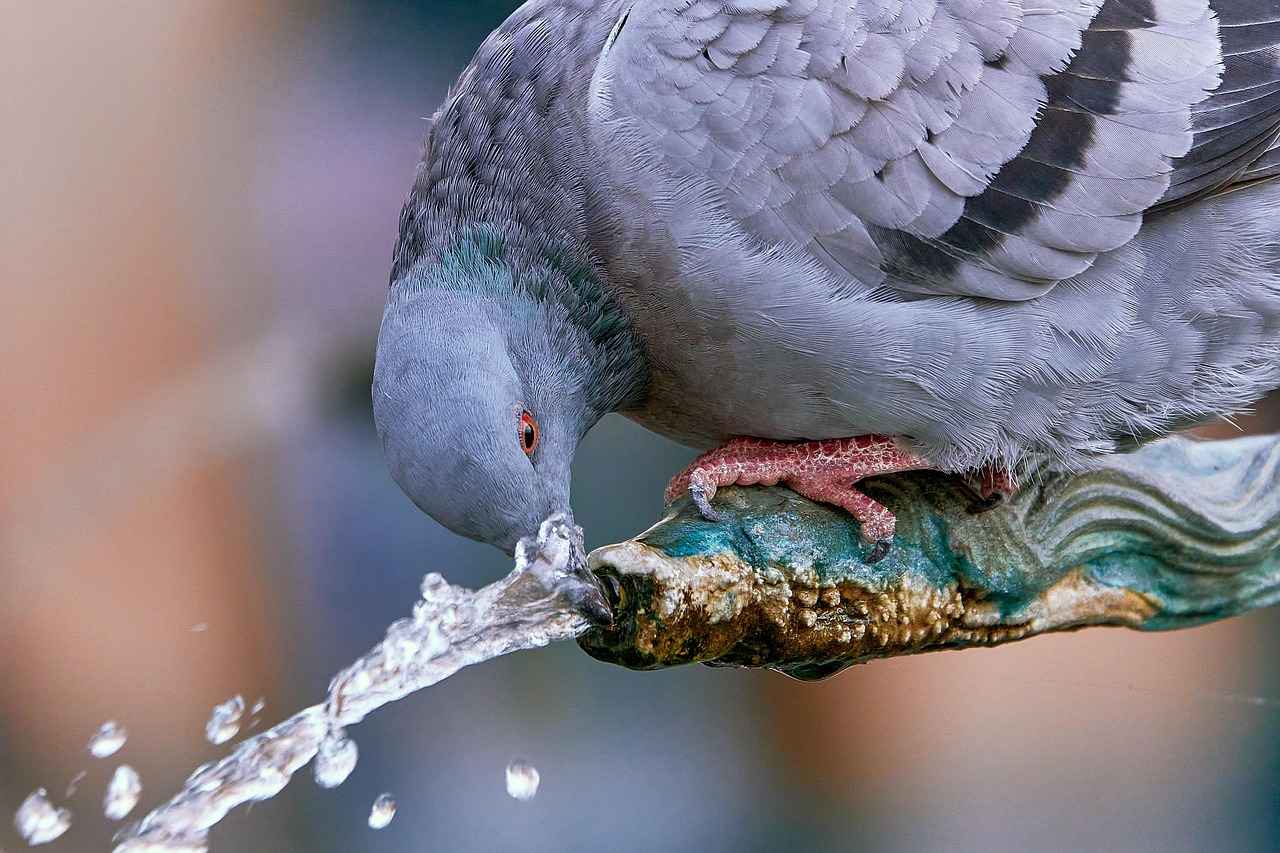
Breaking the Fast Safely
Breaking a fast is a crucial phase in the fasting journey, and how one approaches this process can significantly impact overall health and well-being. After a prolonged period without food, the body requires a gentle reintroduction of nutrients to prevent complications and to maximize the benefits gained during the fasting period.
During a fast, the body undergoes various metabolic changes, including a shift to fat burning for energy. As a result, the digestive system becomes less active, and suddenly consuming heavy or rich foods can lead to discomfort or even serious health issues such as refeeding syndrome. Refeeding syndrome is a potentially fatal condition caused by rapid refeeding after malnourishment, characterized by electrolyte imbalances and fluid shifts.
To avoid complications, it is essential to reintroduce food gradually. The first meals after breaking a fast should consist of small portions of easily digestible foods. This approach allows the digestive system to awaken gently and adapt back to processing solid foods.
- Start with Liquids: Begin with broths, herbal teas, or diluted fruit juices. These options are gentle on the stomach and provide hydration.
- Introduce Soft Foods: After a few hours, consider adding soft foods like mashed potatoes, cooked vegetables, or applesauce. These foods are easier to digest and help ease the transition.
- Progress to Solid Foods: After the initial reintroduction phase, gradually incorporate solid foods, starting with fruits and steamed vegetables before moving on to proteins and grains.
Choosing the right foods to break a fast is vital for a smooth recovery. Here are some recommended options:
| Food Type | Benefits |
|---|---|
| Bone Broth | Rich in nutrients and easy to digest, it helps replenish electrolytes. |
| Fruits | High in water content and vitamins, they provide quick energy and hydration. |
| Steamed Vegetables | Easy to digest and packed with essential nutrients. |
| Fermented Foods | Help restore gut flora and improve digestion. |
Maintaining proper hydration is equally important after breaking a fast. The body has been deprived of fluids, and replenishing these is crucial for recovery. Gradually increase fluid intake, focusing on water, herbal teas, and electrolyte-rich drinks to support rehydration.
As you break your fast, it is important to listen to your body. Pay attention to how you feel after consuming different foods. If you experience discomfort or digestive issues, consider reverting to lighter options and gradually increasing food variety as your body adjusts. Keeping a food diary can also be beneficial to track responses and identify any problematic foods.
Breaking a fast safely is a vital aspect of the fasting experience. By reintroducing food gradually and choosing the right types of foods, individuals can maximize the health benefits gained during the fasting period while minimizing the risk of complications. Always remember that each person’s body is different, and it’s essential to approach this process with care and mindfulness.
Recommended Foods to Break the Fast
Breaking a fast is a crucial phase that can significantly influence your overall health and well-being. After a prolonged period of abstaining from food, the body requires a gentle reintroduction to solid foods. The choice of foods during this transition is essential for easing the digestive system back into its regular function. Below are some recommended foods and strategies to consider when breaking a fast.
- Bone Broth: A nutrient-rich option, bone broth is easy to digest and helps replenish electrolytes lost during fasting. It also provides collagen, which supports gut health.
- Fresh Fruits: Start with soft fruits like watermelon, oranges, or bananas. These fruits are hydrating and high in natural sugars, providing a quick energy boost without overwhelming the digestive system.
- Steamed Vegetables: Lightly steamed vegetables such as zucchini, carrots, and spinach are gentle on the stomach. They offer essential vitamins and minerals while being easy to digest.
- Fermented Foods: Incorporating foods like yogurt or kefir can help restore healthy gut bacteria. These probiotics are beneficial for digestion and can ease the transition back to solid foods.
- Soups: Vegetable or chicken soups can be nourishing and hydrating. They allow for a gradual increase in solid food intake while providing essential nutrients.
It is important to start with small portions when reintroducing these foods. This approach allows your body to adjust without causing discomfort. Gradually increase the quantity and variety of foods over the next few days.
After breaking your fast, maintaining adequate hydration is vital. Continue to drink plenty of water, and consider herbal teas or diluted fruit juices to further support your body during this transition. Staying hydrated helps facilitate digestion and can prevent feelings of bloating or discomfort.
As you begin to reintroduce foods, pay close attention to how your body responds. If you experience any discomfort, it may be wise to revert to lighter options until your digestive system stabilizes. Every individual’s experience is different, and what works for one person may not be suitable for another.
Once you feel comfortable with the initial foods, you can slowly incorporate more solid options, such as whole grains and lean proteins. Foods like quinoa, brown rice, and grilled chicken can provide sustained energy and nutrients essential for recovery post-fast. However, it’s important to continue monitoring your body’s reactions to these foods.
In summary, breaking a fast should be done thoughtfully and gradually. Starting with light, easily digestible foods like broths and fruits can help ease your digestive system back into processing solid foods after a prolonged fast. By following these guidelines and listening to your body, you can ensure a smooth transition and maximize the benefits of your fasting experience.
Hydration Post-Fast
After completing a prolonged fasting period, such as a 21-day water fast, the importance of proper hydration cannot be overstated. The body undergoes significant changes during fasting, and rehydrating correctly is essential for a smooth transition back to regular eating habits. This section will delve into the best practices for hydration post-fast and why it plays a critical role in recovery.
During a water fast, the body relies solely on water for sustenance, which can lead to dehydration if not managed properly. After breaking the fast, the body needs to replenish lost fluids to support vital functions. Proper hydration aids in:
- Restoring electrolyte balance: Essential minerals like sodium, potassium, and magnesium need to be replenished after fasting.
- Supporting digestion: Hydration helps in digestive processes, making it easier for the body to absorb nutrients from reintroduced foods.
- Enhancing metabolic functions: Adequate water intake is crucial for metabolic processes, including energy production and detoxification.
It is vital to approach hydration gradually. Here are some effective strategies:
- Start with small sips: Immediately after breaking your fast, begin with small amounts of water or a light electrolyte drink. This gentle approach helps your body adjust.
- Incorporate hydrating foods: Foods with high water content, such as cucumbers, watermelon, and broths, can aid in hydration while providing essential nutrients.
- Monitor your body’s signals: Pay attention to signs of thirst and adjust your fluid intake accordingly. Aim to drink water consistently throughout the day.
While water is the primary choice for hydration, consider incorporating the following:
- Electrolyte drinks: Consider drinks that contain electrolytes to replenish lost minerals.
- Coconut water: A natural source of electrolytes, it can help restore balance effectively.
- Herbal teas: Non-caffeinated herbal teas can be soothing and hydrating.
As you reintroduce fluids into your system, be vigilant for signs of dehydration, which may include:
- Dry mouth and throat
- Dark yellow urine
- Fatigue or dizziness
If you experience these symptoms, increase your fluid intake immediately.
Once you have safely transitioned out of your fast, maintaining hydration should remain a priority. Here are some long-term strategies:
- Establish a hydration routine: Set reminders to drink water throughout the day.
- Keep a water bottle handy: Having water readily available encourages regular intake.
- Track your intake: Use apps or journals to monitor your daily fluid consumption.
In conclusion, proper hydration after breaking a fast is not just beneficial; it is essential for recovery and overall health. By following these guidelines, individuals can ensure a smoother transition back to their regular eating habits while maximizing the health benefits gained during the fasting period.
Frequently Asked Questions
- What should I drink during a 21-day water fast?
During a 21-day water fast, you should only consume water. It’s important to stay hydrated, so aim for at least 2-3 liters of water each day. Some people also include herbal teas or mineral water, but plain water is the primary focus.
- Can I exercise while fasting?
While light activities like walking or stretching are generally okay, it’s best to avoid intense workouts during a prolonged fast. Your body will be low on energy, and rest is crucial for recovery and maintaining focus.
- What are the common side effects of a 21-day water fast?
Common side effects include fatigue, headaches, and hunger pangs. You might also experience mood swings and cravings. These symptoms are usually temporary and can be managed with hydration and rest.
- How do I safely break my fast?
To break your fast safely, start with light foods like broths, smoothies, or fruits. Gradually reintroduce solid foods over a few days to avoid digestive issues. Listen to your body and take it slow!
- Is a 21-day water fast suitable for everyone?
No, a 21-day water fast is not suitable for everyone. Individuals with underlying health conditions, pregnant women, or those on medications should consult a healthcare professional before starting any prolonged fasting.





